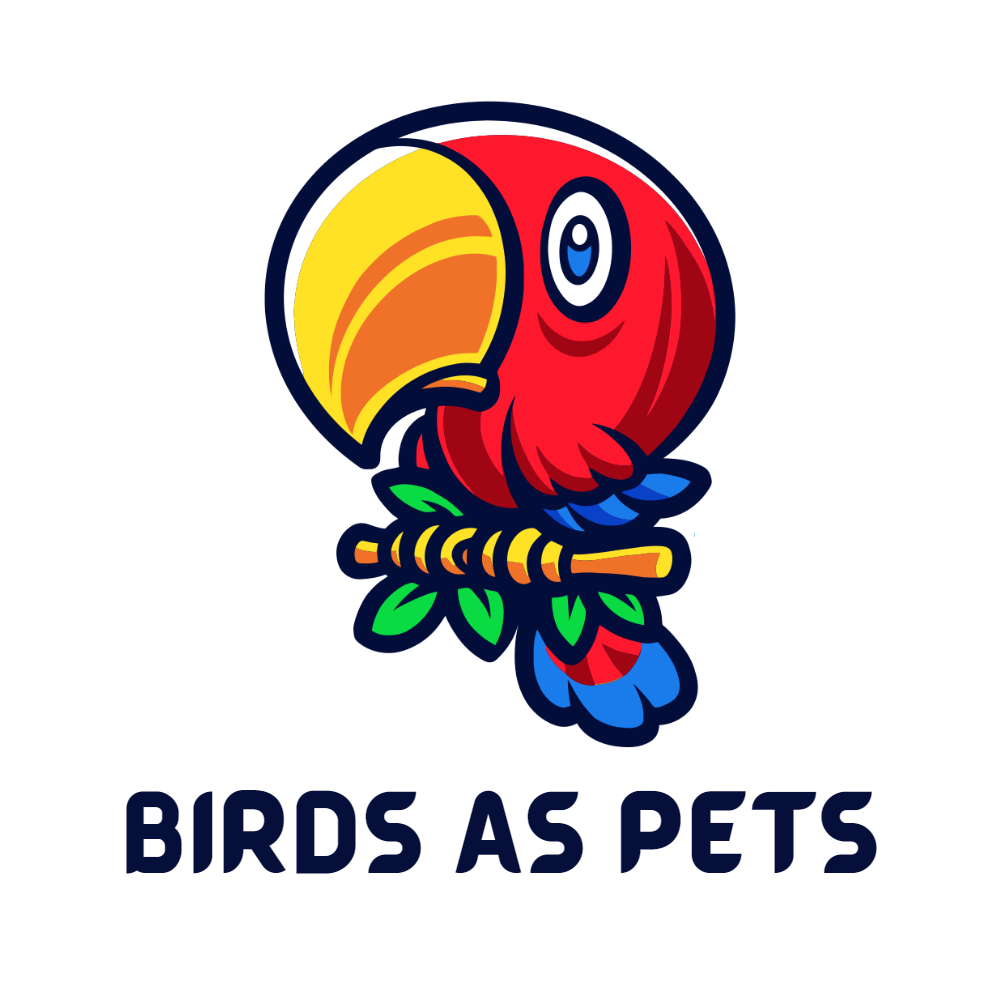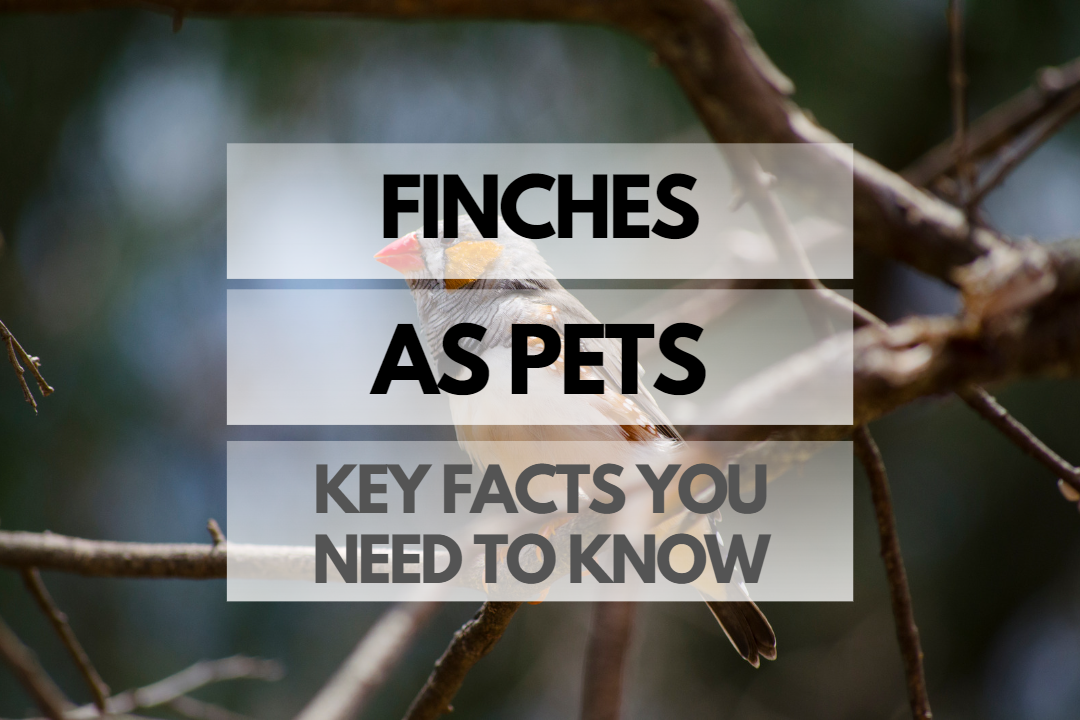Finches are small, active birds that make delightful and low-maintenance pets. With their cheerful chirps and fascinating antics, they can brighten up any home. In this article, we’ll cover everything you need to know about keeping finches as pets, including important facts, lifespan, pros and cons, costs, and care tips.
Quick Reference Table: Finch Facts
| Characteristic | Finch Information |
|---|---|
| Size | 3 to 6 inches (8 to 15 cm) |
| Lifespan | 5 to 10 years, depending on species and care |
| Temperament | Social, active, and generally non-aggressive |
| Vocalizations | Soft chirps and songs, not typically loud |
| Care Level | Moderate |
| Interaction with Humans | Observation and limited handling |
Where Do Wild Finches Live?
Wild finches can be found in a variety of habitats around the world, including forests, grasslands, and even urban areas. There are many different species of finches, each with their unique appearance, behaviors, and geographical distribution. Some popular pet finch species are native to Australia, Africa, and Asia, such as the zebra finch, Gouldian finch, and society finch.
Finch Lifespan: How Long Do They Live as Pets?
Finches typically live for 5 to 10 years in captivity, depending on the species and quality of care they receive. Providing a clean and spacious environment, a balanced diet, and appropriate socialization can help ensure your finch leads a long and healthy life. Owning a finch requires a commitment of time and attention, as they depend on their caretakers for their well-being.
Are Finches Good Pets?
Finches can make excellent pets for the right people. They are small, relatively low-maintenance, and their cheerful songs and active behaviors can be quite entertaining. They’re less demanding than some other bird species like parrots, but they still require proper care and attention to thrive. Finches are not cuddly pets and generally do not enjoy being handled, so they’re best suited for those who prefer to observe their pets rather than interact with them physically.
Are Finches as Pets Good for Beginners?
Finches can be an excellent choice for beginner bird owners, as they are less demanding than some larger bird species. However, they still require consistent care and attention to ensure their health and happiness. New bird owners should research the specific needs of their chosen finch species and be prepared to provide a suitable environment, diet, and socialization opportunities.
Are Finches Easy to Care For?
Finches are generally easier to care for than some larger bird species, but they still have specific requirements that must be met. Regular cleaning of their cage, providing a balanced diet, and ensuring they have access to fresh water are all essential aspects of finch care. Additionally, many finches are social birds and do best when housed with other finches for companionship.
Finch Pros and Cons
| Pros | Cons |
|---|---|
| Small and easy to accommodate | Not suitable for handling and cuddling |
| Low-maintenance compared to larger birds | Still require consistent care and attention |
| Cheerful and entertaining to watch | May not be as interactive as some other bird species |
| Suitable for beginners | Some finch species may have specific care requirements |
Finch Price and Costs
Finches can range in price from $10 to $100or more, depending on the species and rarity. The initial setup costs for a finch can vary, but expect to spend around $100 to $300 for a suitable cage, perches, toys, and feeding supplies. Ongoing expenses include food, supplements, and periodic replacement of toys and cage accessories. Veterinary care is another essential expense, especially if your finch develops any health issues.
Where to Buy Finches
Finches can be purchased from reputable breeders, pet stores, or bird rescue organizations. It’s essential to buy from a knowledgeable and responsible source to ensure your finch is healthy and well-socialized. Research the seller’s reputation, ask questions about the bird’s background, and if possible, visit the bird’s current environment before making a purchase.
Caring for Finches
Proper care is crucial to the health and happiness of your finch. This includes providing a spacious and clean living environment, a balanced diet, and opportunities for socialization and mental stimulation.
Finch Food
A balanced diet is essential for your finch’s overall health. Finches primarily eat seeds, but their diet should also include fresh fruits, vegetables, and protein sources like egg or insects. Many commercially available finch seed mixes provide a good foundation, but additional fresh foods should be offered regularly. Provide clean water daily and change it as needed to ensure it remains fresh.
Health and Common Issues
Finches are generally hardy birds, but they can be susceptible to certain health issues, such as respiratory infections, parasites, and egg-binding. Regularly observe your finch for signs of illness and consult a veterinarian experienced in avian care if you notice any changes in your bird’s behavior, appearance, or droppings.
Signs of Healthy Finches vs. Sick Finches
| Healthy Finch | Sick Finch |
|---|---|
| Alert and active | Lethargic or fluffed up |
| Clear, bright eyes | Discharge or swelling around the eyes |
| Smooth, clean feathers | Ruffled, dirty, or missing feathers |
| Normal droppings | Changes in droppings (color, consistency, or frequency) |
| Regular eating and drinking | Loss of appetite or difficulty drinking |
| Normal weight and body condition | Weight loss or visible keel bone |
Finches Pet Insurance
Just like any other beloved pet, it’s essential to consider pet insurance for your finches. Pet insurance can help cover unexpected veterinary costs in case of illness or injury, ensuring your feathered friends receive the best care possible without breaking the bank. A variety of plans are available, tailored to the specific needs of bird owners, so it’s worth researching to find the perfect policy for your finches.
Personality and Behavior
Finches are charming little birds with delightful personalities. They are generally active, playful, and curious creatures, making them excellent pets for bird enthusiasts. Finches enjoy flying, hopping, and exploring their surroundings. While they may not be as cuddly as some other pet birds, they provide endless entertainment with their antics and cheerful singing.
Are Finches Social?
Finches are indeed social creatures, and they thrive in the company of other finches. In the wild, they live in flocks, and as pets, they should be kept in pairs or small groups to ensure their happiness and well-being. It’s important to note that some finch species may be more territorial than others, so it’s crucial to choose compatible species when creating your finch family.
Speech and Noise of Finches
While finches are not known for their ability to mimic speech like parrots, they do have a lovely, melodic song. They may have various chirps and calls depending on their mood and the time of day. Generally, finches are considered relatively quiet pets compared to other birds, making them suitable companions for those living in apartments or shared spaces.
Similar Species to Finches
There are numerous finch species available for bird enthusiasts to choose from, including zebra finches, society finches, and Gouldian finches. Each species has its unique traits and characteristics, so it’s essential to research the specific needs and requirements of your chosen finch type before bringing them home.
Can Finches Live With Other Pets and Birds?
Finches can coexist with other small, non-aggressive birds in a spacious, well-designed aviary. However, it’s essential to monitor their interactions closely and ensure that the birds are compatible. Finches should not be housed with larger or more aggressive bird species, as they may become stressed or injured. As for other pets, such as cats and dogs, it’s crucial to supervise their interactions with your finches and provide a secure environment for your birds to prevent accidents.
Are Finches Legal to Have as Pets?
In most countries, it is legal to keep finches as pets. However, local regulations and restrictions may apply, so it’s essential to check with your local authorities or wildlife conservation agencies before bringing a finch home.
Additional Resources
- Finch Care Handbook
- Finch Lovers Facebook Group
- Finch Forum
- Scientific articles on finch behavior and care
FAQ for Finches as Pets
Do Finches talk?
No, finches are not known for their ability to mimic human speech like parrots. However, they do have a beautiful, melodic song that many bird enthusiasts find appealing.
Are Finches suitable for families with young kids?
Finches can be a good choice for families with young children, as they are generally low-maintenance and quiet pets. However, it’s important to teach children how to interact with and care for the birds responsibly.
Can Finches be trained?
While finches are not known for their trainability like parrots, they can be taught simple tasks and routines, such as returning to their cage on command. Patience, consistency, and positive reinforcement are key when training finches.
How do I know what gender Finches are?
Some finch species exhibit sexual dimorphism, with males and females displaying different colors or markings. In other species, determining gender can be more challenging and may require DNA testing or expert assistance.
What is the average lifespan of a Finch?
The average lifespan of a finch varies depending on the species, with some living up to 5-7 years, while others can live up to 10 years or morewith proper care. A well-maintained environment, balanced diet, and regular veterinary check-ups can help ensure a long, healthy life for your finch.
What kind of cage do Finches need?
Finches need a spacious cage that allows them to fly and exercise. The cage should be longer than it is tall, with plenty of horizontal bars for perching. Additionally, it should have secure doors, proper ventilation, and easy-to-clean surfaces. Provide toys, perches, and hiding spots for mental stimulation and enrichment.

